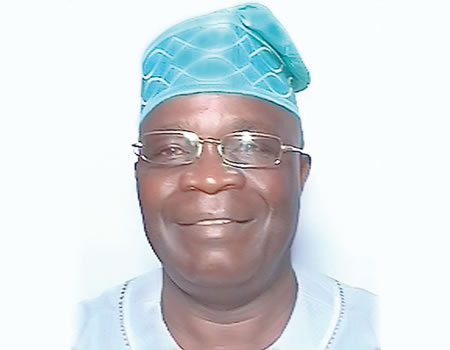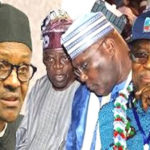WHAT is your view about the N8.6 trillion 2018 budget proposal of President Muhammadu Buhari?
I hope it is not just another ritual. It is supposed to be some N8.6 trillion budget. Some might see it as an improvement over last year’s estimates, but to me as an economist, we have to factor in inflation. So if you have a budget of N8.6 trillion but you have to tackle inflation rate at 16 per cent between last year and now, you will then remove 16 per cent from that figure to get the real figure or value of the budget.
However, there is no perfect budget in the world and so the efficacy of any budget depends on implementation. You have a budget in your home, I have one, but if there is no money to back it up, you think in terms of income from crude oil sale. Income from crude oil is still the bedrock of the economy. The bulk of the income that we make is from crude oil sale. A barrel of crude oil presently sells for about $60 now. If it stays that way and does not crash to $30 per barrel, I think we have a lot of hope.
Also the budget proposal assumes that the country would produce 2.3 million barrels per day. If we are able to achieve that level of production, we should be fine but if militants and vandals decide to strike again, then the budget will be at risk.
Do you think the proposal that Nigeria will produce 2.3 million barrels per day in 2018 is realistic?
I hope so. For the sake of Nigeria, I hope so, because government has been trying to press buttons behind closed doors, talking to Niger Delta Avengers and they are still paying allowances to ex-militants. If all those palliatives continue, then they will be able to get us close to that figure, but if there is sabotage again then your guess is as good as mine.
Will National Assembly approve the $45/barrel benchmark?
There are many methods to use in economics to determine whether that is a realistic figure. The question you are asking me is: do I think throughout 2018, the price of crude oil will stay at $45/barrel or higher? The answer is yes. There are methods to use but by and large, if you look at the trend in the market over the past two years, I think the price is realistic. As a matter of fact, it is more comfortable for me to say it is more realistic than if they were to assume $55/barrel knowing that oil is at about $62. That will be coming too close for comfort. But there is a lot of elbow room between $45 and $60. I think we can live with it. I am in fact predicting to you that when the National Assembly will do the budget, we might even increase from $45 to something slightly higher because we believe that we might be able to survive it.
And what is your view about the N2.005 trillion deficit built into the proposal?
That is actually the real kicker because the rate of borrowing or the level of borrowing that we are depending on to run the budget is very high. Apart from the high cost of domestic borrowing, when you borrow as government from the system, you are also crowding out the private sector. When government takes so much money from the market, the banks have little to lend to the private investors. It also means that if you look at the figures very well, the funds allocated to funding the loans… if you are borrowing 32 per cent of your expected expenditure, then you can imagine how much you are going to pay. So, the cost of interest is high. Government is trying to bring the rate down by diversifying the borrowing offshore, because the cost of borrowing offshore is lower at between six to seven per cent as opposed to over 20 per cent here. All the same, borrowing is borrowing and the Bible tells me that the borrower shall be slaved to the lender, so if the economy is going to benefit from borrowing, they need to know what to do with it. If you borrow to pay salaries, that will be compounding the problem. But if they spend the money borrowed on infrastructure and other things that can pull the economy out of the woods, then we are on to something good.
Naira currently exchanges for around 360 units in the market to $1US but the budget estimates fixed it at 305/US$. Is that okay?
As far as I know, the naira is not floating. It is still managed in the exchange market. So, I think they are just managing to ensure that at N360 for people that are not really critical to the economy. I am important to the economy, but I am not critical, I am not a manufacturer whose factory may have to close down because I couldn’t get raw materials. They ask me to pay N350 for $1 for children’s school fees offshore, that is fair enough. But if you ask a manufacturer to pay the same price for foreign exchange, she may have to let go all of her manufacturing staff. So, the lower manufacturers and for government activities, the better for everybody in the economy.






